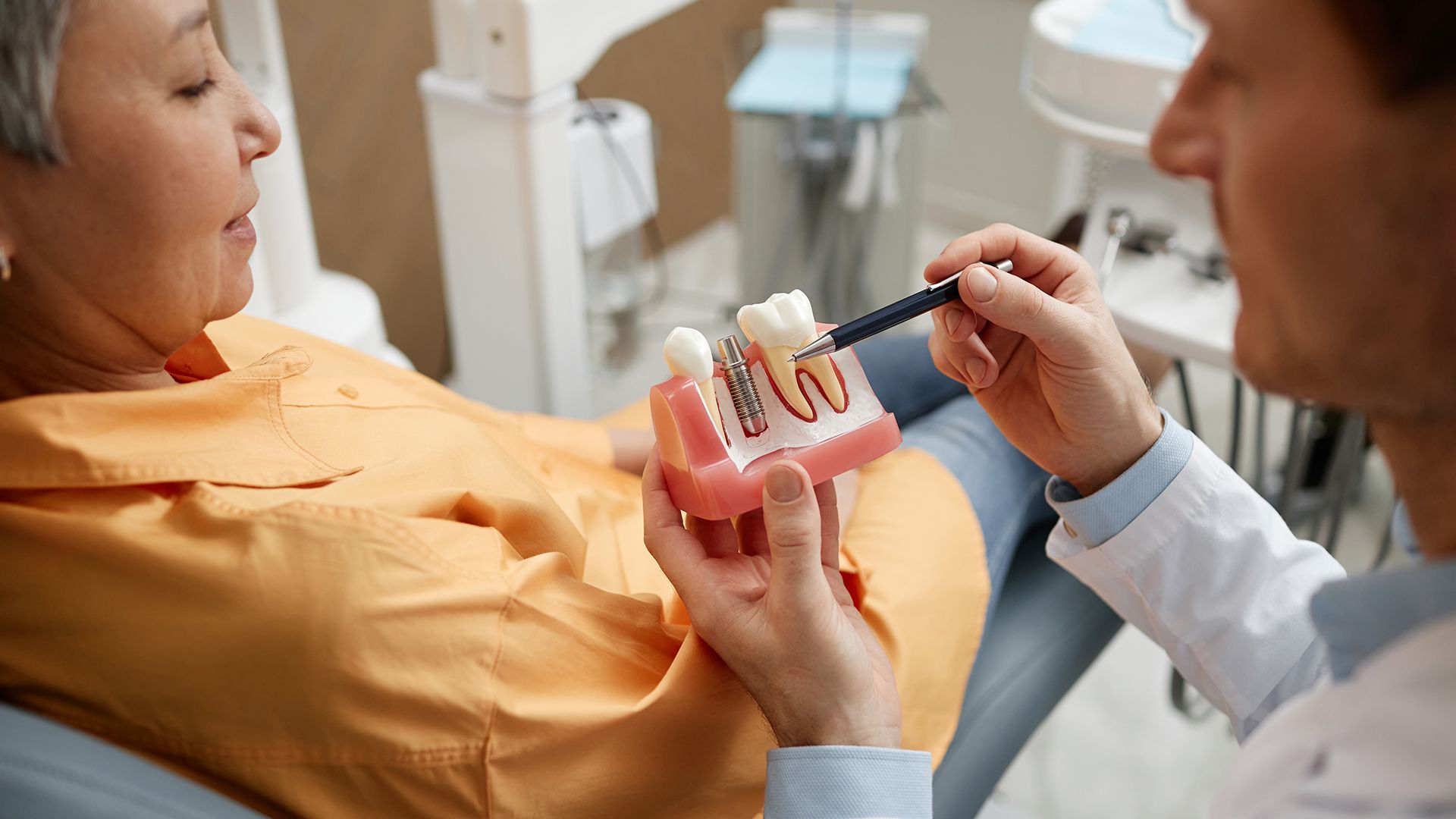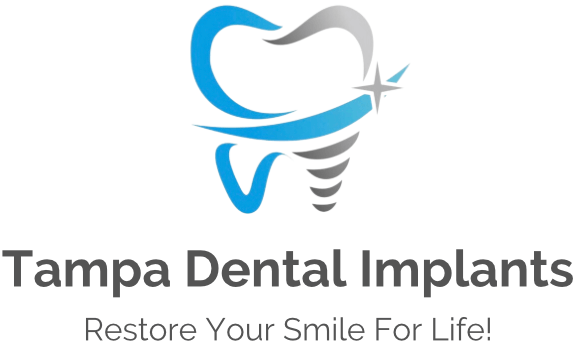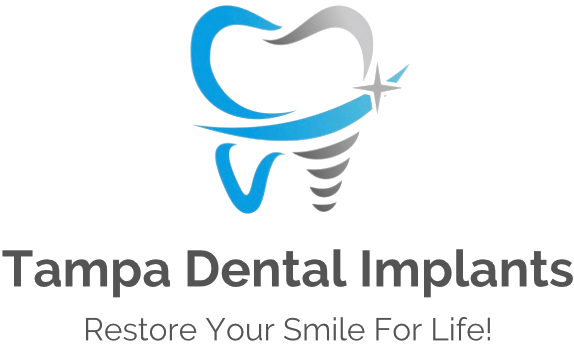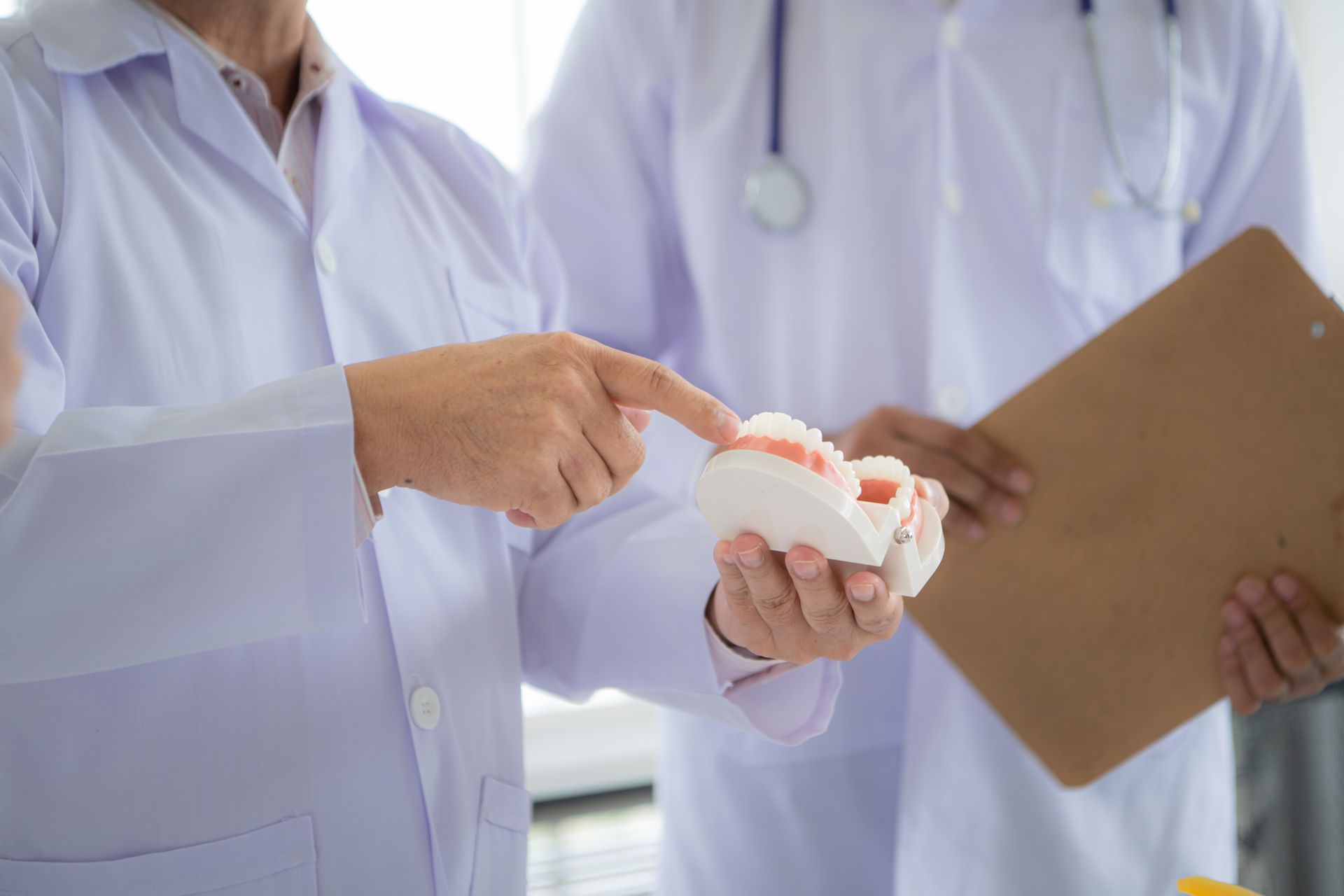All-on-4 Dental Implants in Tampa: Who’s a Candidate and What to Expect

If you’re searching for all on 4 dental implants Tampa, you probably want clear, honest information, not a sales pitch. At Tampa Dental Implants, our team focuses on implant dentistry every day. We use 3D imaging, proven full arch restoration techniques, and evidence-based treatment plans to help adults who have lost many or all of their teeth. This guide explains who is (and isn’t) a good candidate and what you can expect from start to finish so you can decide, with confidence, if All-on-4 is right for you.
What Are All-on-4 Dental Implants?
All-on-4 is a way to replace a full arch of missing teeth using just four dental implants in the jaw. Instead of replacing each tooth one by one, the implants support a full set of fixed teeth.
All-on-4 is often used as a:
- Permanent teeth replacement option
- Denture alternative for people who are unhappy with loose, removable dentures
- Long-term
missing teeth solution for severe tooth loss
This treatment is sometimes called “teeth in a day” or “same-day dental implants” because you can often leave surgery with a fixed set of new teeth the same day.
How the All-on-4 System Works
In a typical case:
- Four
titanium dental implants are placed in the jaw.
- Two are set near the front of the jaw, and two are angled toward the back to make the most of your existing bone.
- A full arch of teeth (an
implant-retained prosthesis) is attached to the implants.
Because of the way the implants are positioned, many patients do not need bone grafting. This makes All-on-4 a strong bone graft alternative for people who have had missing teeth for years.
Benefits of All-on-4 Over Traditional Implants or Dentures
Compared with standard implant-supported dentures or traditional removable dentures, All-on-4 can offer:
- Fixed teeth that don’t move, click, or slip
- The ability to bite and chew more like natural teeth
- A faster treatment timeline than placing many single implants
- A more stable solution than regular dentures for
tooth loss treatment
- A major boost in confidence and
smile restoration
For many people, it's the middle ground between full dentures and a mouth full of individual implants.

Who Is a Good Candidate for All-on-4 Implants?
All-on-4 isn’t right for everyone, but many adults with serious dental problems qualify.
General Health and Oral Conditions
You may be a good candidate if:
- You are missing most or all of your teeth on the top, bottom, or both
- You have teeth that are badly decayed, broken, or failing
- You are healthy enough for
dental implant surgery and
oral surgery
- You can keep up with daily brushing, flossing, and checkups
Certain health issues, like uncontrolled diabetes or active gum disease, don’t always rule you out, but they need to be managed first.
Bone Density and Jaw Health
All-on-4 is often chosen when there has been bone loss in the jaw. Because the implants are angled, they use the stronger areas of bone and may avoid a large bone graft.
You may still be a candidate even if:
- You’ve worn dentures for many years
- You’ve been told you don’t have enough bone for standard implants
However, very severe bone loss or untreated jaw problems may require extra planning or different dental implant options. In cases of extreme bone loss in the upper jaw, zygomatic dental implants or sinus lift surgery may be considered.
Lifestyle and Personal Goals
All-on-4 might be a good fit if you:
- Want
fixed implant dentures instead of removable ones
- Want to restore your smile in fewer visits
- Are looking for a long-lasting solution, not a short-term fix
- Understand the
cost of All-on-4 implants is an investment in long-term oral health
Your goals, expectations, and willingness to follow aftercare instructions all play a big role in deciding if this is the best option.
What to Expect During the All-on-4 Procedure
Knowing the steps ahead of time can make the process much less stressful.
Initial Consultation and Planning
At your first visit in Tampa, expect:
- A detailed exam and dental history
- 3D scans of your jaws to plan implant placement
- A discussion of your
full mouth dental implants options
- An honest talk about risks, benefits, and costs
This is also when you’ll talk about dental sedation options to keep you relaxed and comfortable during surgery.
The Day of Surgery
On the day of your All-on-4 procedure:
- Any remaining failing teeth in the arch are removed.
- Four implants are placed in precise positions.
- A custom temporary set of teeth is attached to the implants.
Most people go home the same day with fixed same-day teeth implants Tampa patients often call “teeth in a day.” You’ll need someone to drive you home and stay with you for a bit while the sedation wears off.
Temporary vs. Permanent Teeth
Your first set of teeth is designed to protect the implants while they heal. After several months:
- The implants fuse with the bone (a process called osseointegration).
- You’ll be fitted for your final
full-arch dental implants restoration.
- The permanent teeth are stronger, more polished, and built for long-term use.
This final step is where we fine-tune your bite, speech, and appearance.
Recovery and Aftercare
Healing is a key part of the success of any all-on-x procedure.
Post-Surgery Healing Timeline
Most people experience:
- Soreness and swelling for a few days
- A week or two of mild discomfort that can usually be managed with medication
- Gradual improvement over the first month
You'll have follow-up visits so your dentist can check the implants and your bite. Understanding the recovery time for dental implant surgery helps set realistic expectations.
Dietary and Oral Hygiene Guidelines
Right after surgery, you'll follow a soft diet to protect the implants. Over time, you can add more foods back in. Learn more about how to eat with dental implants.
You’ll also learn how to care for your new teeth:
- Brush twice daily with a soft brush
- Clean under and around the bridge with floss or special tools
- Keep regular hygiene visits to maintain the
implant-retained prosthesis
Good care protects your investment and keeps your mouth healthy. Following proper dental implant maintenance is essential for long-term success.
Long-Term Maintenance Tips
With proper care, dental implants vs dentures usually last much longer and feel more natural. To keep your All-on-4 working well:
- Don't smoke or vape, as they can
slow healing and increase implant risk
- Wear a nightguard if you clench or grind
- Keep up with checkups so small issues don’t turn into big problems
Think of All-on-4 as a long-term restorative dentistry solution that still needs routine maintenance. While implants are highly successful, it's important to understand whether dental implants can fail and how to prevent complications.
Why Choose All-on-4 in Tampa?
Tampa is a strong place to seek dental implant options thanks to experienced providers and modern technology.
Access to Skilled Implant Dentists
In the Tampa area, you can find dentists and surgeons who:
- Focus on complex
dental implants and
full arch restoration
- Regularly perform All-on-4 and related treatments
- Work with high-quality dental labs for natural-looking results
Choosing a team with real experience in all on 4 dental implants Tampa can improve comfort, safety, and long-term success. When selecting a provider, consider asking these 15 questions to ask your dental implant dentist.
Technology and Facilities in the Area
Many Tampa practices now use:
- 3D CT imaging for precise planning
- Digital scans instead of messy impressions
- Guided surgery tools for accurate implant placement
These tools help create a more predictable, efficient experience for patients who want smile restoration Tampa solutions.
Cost Considerations and Financing Options
The cost of All-on-4 implants varies based on:
- Which arch (top, bottom, or both) is treated
- The materials used for the final bridge
- Whether extra procedures are needed
While it is a major investment, many offices offer payment plans or financing to make full-arch dental implants Florida more manageable. When comparing prices, look at the total value, including planning, surgery, temporary and final teeth, and follow-up care. For detailed pricing information, read about the real cost of permanent denture implants.
If you're wondering whether All-on-4 is the right missing teeth solution for you, the next step is a thorough consultation. A one-on-one visit lets us review your health, answer your questions, and walk you through possible treatment paths, whether that's All-on-4, All-on-6, other dental implant options, or a different approach altogether.
Contact Tampa Dental Implants in Tampa to schedule a consultation or second opinion. Our goal is simple: give you clear information and a realistic plan so you can choose the path that fits your health, your smile, and your life.






